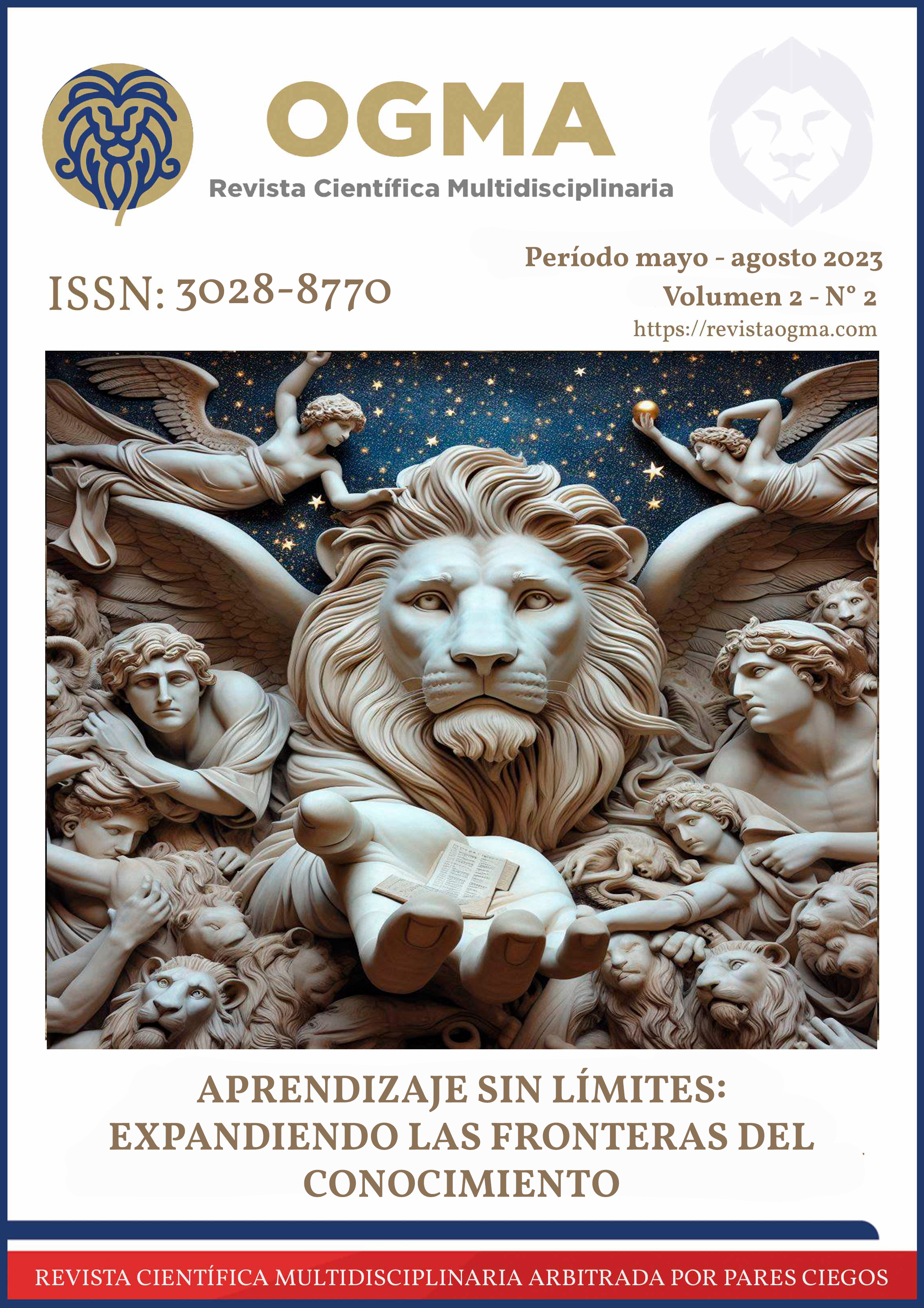Games in chemistry learning
Keywords:
Videogame, Learning, ChemistryAbstract
This research has as a better objective the learning of chemistry in high school students through the use of videogames, taking into account their motivating and educational potential, revealing that there is improvement when applicable in various subjects. The methodology used for its application is the quantitative approach, using a quasi-experimental type design, with the population of 185 students at the baccalaureate level, taking as a sample 35 representing all the students enrolled in the second year of the baccalaureate Puerto Limón educational unit. A pre-test or knowledge test was applied, which shows the main difficulties in learning chemistry; The relevance of the instrument is determined by statistical calculation on the frequency of the experts. The results show that students do not present solid knowledge of the subject addressed in the subject of chemistry.
References
Alemán, P. & Mayora, F. (2009). Estrategias para el aprendizaje de la química de noveno grado apoyadas en el trabajo de grupos cooperativos. Sapiens. Revista Universitaria de Investigación, 10(1), 109-135. https://bit.ly/2GZaXiE
Bell, A., & Gresalfi, M. (2017). Teaching with videogames: How experience impacts classroom integration. Technology, Knowledge and Learning, 22(3), 513-526. https://bit.ly/2GEXAEJ
Blanco, B. (2006). El videojuego como material educativo: La Odisea. Revista científica de Comunicación y Tecnologías emergentes, 4(1), 48-76. https://doi.org/10.7195/ri14.v4i1.397
Casas, W. Castellanos, Y. Castellanos, Y. & Salazar, J. (2016). El videojuego como recurso educativo: un acercamiento entre percepción docente y el videojuego Minecraft como recurso educativo, para potenciar el trabajo colaborativo en estudiantes de grado cuarto [Master's thesis, Facultad de Educación]. https://bit.ly/2SgYwRa
Del Castillo, H. (2012). Desarrollo de competencias a través de los videojuegos deportivos: alfabetización digital e identidad. Revista de Educación a Distancia, (33). https://revistas.um.es/red/article/view/233111
Esguerra, G. & Guerrero, P. (2010). Estilos de aprendizaje y rendimiento académico en estudiantes de psicología. Diversitas: Perspectivas en psicología, 6(1). https://bit.ly/2U3TMjA
García, B. & Hernández, R. (2010). El uso de videojuegos en el aula de matemáticas en 4º Curso de Educación Primaria. Séptimo Simposium Iberoamericano en Educación, Cibernética e Informática (SIECI-2010). https://bit.ly/2GHk8Vj
Imaz, I. (2011). Pantallas y educación: adolescentes y videojuegos en el País Vasco. Teoría de la Educación. Revista Interuniversitaria, 23(1), 181-200. https://bit.ly/2NlHJvq
Khan, A. Ahmad, F. & Malik, M. (2017). Use of digital game based learning and gamification in secondary school science: The effect on student engagement, learning and gender difference. Education and Information Technologies, 22(6), 2767-2804. Recuperado de: https://bit.ly/2tyJTPd
Lawshe, C. (1976). A quantitative approach to content validity 1. Personnel psychology, 28(4), 563-575.
Levis, D. (2013). Los videojuegos, un fenómeno de masa 2ª edición ampliada, 1º edición electrónica.
Marín, V. & García, D. (2005). Los videojuegos su capacidad didáctico-formativa. Pixel-bit. Revista de medios y educación, 26, 113-119. http://hdl.handle.net/11441/45606
Marqués, P. (2000). Los videojuegos y sus posibilidades educativas. UAB.
Melo-Solarte, D. & Díaz, P. (2018). El Aprendizaje Afectivo y la Gamificación en Escenarios de Educación Virtual. Información tecnológica, 29(3), 237-248. https://bit.ly/2Eq8XhD
Ministerio de Educación (2016). Curriculum de Química bachillerato General Unificado. https://educacion.gob.ec/curriculo-ciencias-naturales/
Moral, M. Guzmán-Duque, A. & Fernández, L. (2018). Game-based learning: Increasing the logical-mathematical, naturalistic, and linguistic learning levels of primary school students. Journal of New Approaches in Educational Research. http://dx.doi.org/10.7821/naer.2018.1.248
Moreira, M. (2005). Mapas conceptuales y aprendizaje significativo en ciencias. Revista Chilena Educación Científica, 4(2), 38-44. https://bit.ly/2tI8nWt
Pérez, F. (2016). Aplicación de herramientas de gamificación en física y química de secundaria. Revista de Ciencias Humanas y Sociales, (12), 327-348. https://bit.ly/2ReezyX
Pérez, L. (2001). Estrategias de aprendizaje, género y rendimiento académico. Revista Galego-Portuguesa de Psicoloxia e Educacion, 7(5), 203-216. https://bit.ly/2GZzioy
Rivas, M. (2008). Procesos cognitivos y aprendizaje significativo. Comunidad de Madrid. Consejería de Educación. Viceconsejería de Organización Educativa. http://repositorio.minedu.gob.pe/handle/123456789/4809
Rodríguez-Hoyos, C. & Gomes, M. (2013). Videojuegos y educación: una visión panorámica de las investigaciones desarrolladas a nivel internacional. Profesorado. Revista de Currículum y Formación de Profesorado, 17(2), 479-494. https://www.redalyc.org/pdf/567/56729526027.pdf
Rosero, M (1 de septiembre de 2018), Angustia en alumnos que no pasaron el año escolar, El Comercio. https://www.elcomercio.com/actualidad/angustia-alumnos-supletorio-remedial-reprobados.html
Salgado, F. (2006). Dificultades de aprendizaje en química: caracterización y búsqueda de alternativas para superarlas. Ciência & Educação, 12(3), 333-346. https://bit.ly/2BOqQEZ
Salvat, G. (2000). La dimensión socioeducativa de los videojuegos. Edutec. Revista electrónica de tecnología educativa, (12). https://doi.org/10.21556/edutec.2000.12.557
Serrano, J. & Pons, R. (2011). El constructivismo hoy: enfoques constructivistas en educación. Revista electrónica de investigación educativa, 13(1), 1-27. https://redie.uabc.mx/redie/article/view/268
UNESCO. (2013). Enseñanza y aprendizaje: lograr la calidad para todos. Unesco. https://unesdoc.unesco.org/ark:/48223/pf0000225654_spa
Downloads
Published
Issue
Section
License
Copyright (c) 2023 Multidisciplinary Scientific Journal Ogma

This work is licensed under a Creative Commons Attribution-NonCommercial-ShareAlike 4.0 International License.

